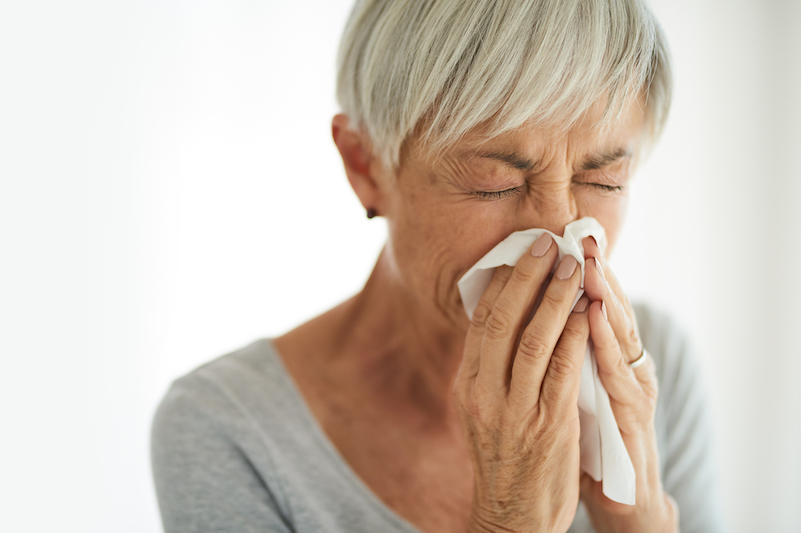With spring on the horizon, so is allergy season. If you’re one of the many people stocking up on antihistamines, you’re probably already aware of the side effects: dizziness, drowsiness, dry mouth, nausea. But there’s one side effect you may not be familiar with: vaginal dryness.
It stands to reason that if allergy meds dry out your mouth and sinuses, they’ll dry out your vagina, too.
How Antihistamines Work
The role of antihistamines in allergy medications is to prevent the effects histamine, which the body produces as a reaction to allergens. They dry up the mucus membranes that cause a runny nose, sneezing, and itchy, watery eyes. But they can also dry up other mucus membranes — specifically those in your vagina. Though this isn’t an issue for all women who take common allergy meds, it’s something to be aware of. If you experience vaginal dryness seemingly out of nowhere, maybe your meds are to blame.
There are two types of antihistamines. Traditional antihistamines can cause drowsiness, the newer antihistamines do not. Their side effects are different: in addition to drowsiness, traditional antihistamines can cause dry mouth, blurred visions, and difficulty emptying your bladder. Side effects of newer antihistamines include headache and dry mouth. Since both types of antihistamines dry up mucus membranes, it’s possible for either type to cause vaginal dryness.
Other Medications That Cause Vaginal Discomfort
In addition to antihistamines, there are other meds that can disrupt your vaginal health. Antibiotics can change the balance of bacteria in your vagina, which can lead to a yeast infection. If you’re prone to yeast infections, give your doctor a heads up before taking antibiotics.
And like allergy meds, decongestants dry up nasal passages, which means they may also dry up vaginas.
If you’ve connected dryness to your allergy meds, talk to your doctor about the options. For instance, if you typically take oral antihistamines, you may get the same allergy relief from a nasal spray without the dryness.
If you can’t avoid taking medication that causes dryness, make hydration a priority. For vaginal dryness, get a high-quality vaginal moisturizer. Look for one with hyaluronic acid and vitamin E, and apply it as often as you need it. You might also consider a lubricant prior to intercourse to help alleviate discomfort during sex.
Additional Things to Watch For
Not using antihistamines but experiencing vaginal discomfort? There are a number of common skin conditions that can cause itching, dryness, redness, and overall irritation. To help prevent vaginal irritation, opt for unscented lotions and soaps, use detergents that are free from fragrances and dyes, use only undyed toilet paper, and wear loose-fitting clothing when you can.
And to gauge your vaginal skin health, test yourself at home.
Photo: Cecilie Arcurs
